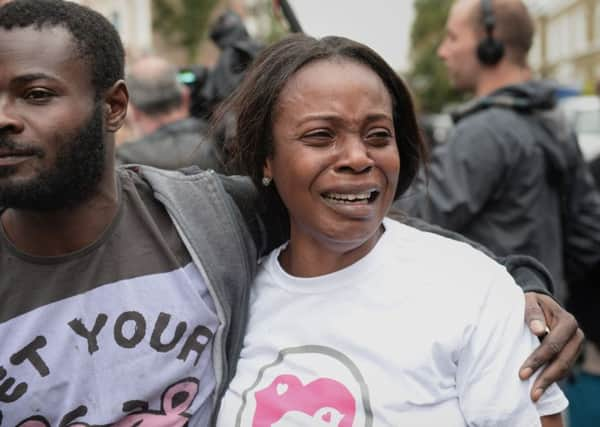Leaders: Questions for Big Society as charity closes


The collapse of the charity has obviously become a very complicated affair which has generated a great deal of emotion and interest and it is easy to see why. Not only does it deal directly with very vulnerable young people, it was seen as the very embodiment of David Cameron’s Big Society.
But that is not the only political area it now occupies. Ms Batmanghelidjh yesterday also tied the withdrawal of government support to the widespread investigations in to historical sex abuse by senior members of the establishment.
Advertisement
Hide AdAdvertisement
Hide AdShe believes her outspoken stance on child protection problems was a factor in the government turning against the charity.Coming at the same time as the revelations of allegations against former prime minster Sir Edward Heath, obviously these new allegations deserve to be fully investigated.
But the wider picture involving the Kids Company is about the role of government and charities in caring for sections of society.
When David Cameron first became Prime Minister, his big idea was Big Society. This was the political philosophy that enshrined his new brand of caring Conservatism, achieving smaller government but at the same time using committed and dedicated organisations, communities and individuals to provide the care that a good society should. Care outside of government.
The concept has merit. Governments surely must have a limit as to what is within their control, and usually services within government control are costly, bureaucratic, unaccountable and remote. So government backing society to look after itself in a more direct and organic way does have its appeal.
But Mr Cameron was not short of critics as he unveiled his vision, with many saying it was just the same old Tories trying to get care on the cheap, and a way to divest government of troublesome responsibilities.
Now the collapse of Kids Company will be taken by some as proof of their doubts about Big Society. Indeed Ms Batmanghelidjh said factors in its closing were that it was dealing with too many serious cases that should have been dealt with by government and that there was not enough funding.
But we should be wary of extrapolating too much about the principles of Big Society from the collapse of the Kids Company. We should not forget that there are many successful non-government organisations delivering vital services to many, many people.
SNP deal talk could sink Corbyn
The UK Labour leadership contest has hardly set the heather on fire, and the rise of Jeremy Corbyn from rank outsider to serious contender perhaps says more about the uninspiring alternatives than anything else.
Advertisement
Hide AdAdvertisement
Hide AdBut victory for Corbyn would be a genuine political shock, and there has been open talk that if the 66-year-old was to win, moves would start immediately to remove him.
Such a coup may not be necessary, following Corbyn’s suggestion that he could work with the SNP in a confidence-and-supply arrangement, should Labour fail to achieve a majority at the next election. While Corbyn’s approach makes arithmetic sense, it takes no heed of one of the key lessons for Labour from this year’s general election.
By the time Ed Miliband declared he would rather walk away from government than cut a deal with the SNP, it was too late. The election had been lost long before polling day, after the Conservatives hit on the effective tactic of warning that in the event of a hung parliament, the Scottish Nationalists could dictate Westminster affairs. For many voters in England, the prospect of the party who wanted to break up Britain being allowed to call the shots in London was beyond the pale. A vote for Labour was too dangerous to contemplate.
Corbyn’s approach may appeal to Labour pragmatists who believe they have to consider all options if they wish to return to power, perhaps fearing an overall majority is no longer possible. But Corbyn’s early showing of his hand on such a sensitive issue is not a shrewd move, and could easily mark the beginning of the end of his campaign.